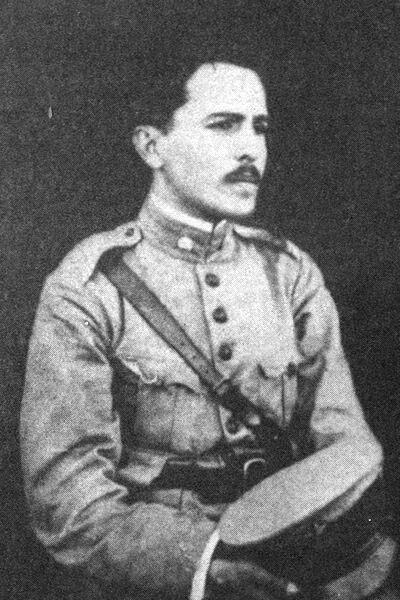Luís Carlos Prestes was a Brazilian revolutionary and politician who served as the general-secretary of the Brazilian Communist Party from 1943 to 1980 and a senator for the Federal District from 1946 to 1948. One of the leading communists in Brazil, Prestes has been regarded by many as one of Brazil's most charismatic yet tragic figures for his leadership of the 1924 tenentist revolt and his subsequent work with the Brazilian communist movement. The 1924 expedition earned Prestes the nickname The Knight of Hope.
Luis Carlos Prestes in 1959.
A young Prestes in military uniform
Luis Carlos Prestes in Bolivia in 1928, shortly after concluding the Prestes Column's 3-year march throughout Brazil's interior.
Prestes (bottom right) speaking on the floor of Congress as Senator in 1946.
Rio Grande do Sul Revolt of 1924
The Rio Grande do Sul Revolt of 1924 was triggered by tenentist rebels from the Brazilian Army and civilian leaders from the Liberating Alliance on 28–29 October of that year. The civilians, continuing the 1923 Revolution, wanted to remove the governor of Rio Grande do Sul, Borges de Medeiros, while the military were against the president of Brazil, Artur Bernardes. After a series of defeats, in mid-November the last organized stronghold was in São Luiz Gonzaga. In the south, guerrilla warfare continued until the end of the year. From São Luiz Gonzaga, the remnants of the revolt headed out of the state, joining other rebels in the Paraná Campaign and forming the Miguel Costa-Prestes Column.
Loyalist defenses in Itaqui
The liberating deputy Batista Luzardo (on the left in the first row) with the tenentist leaders in Paraná, 1925
The Military Brigade of Rio Grande do Sul in operations in São Paulo
Rio Grande do Sul's Auxiliary Corps in the Paraná Campaign








